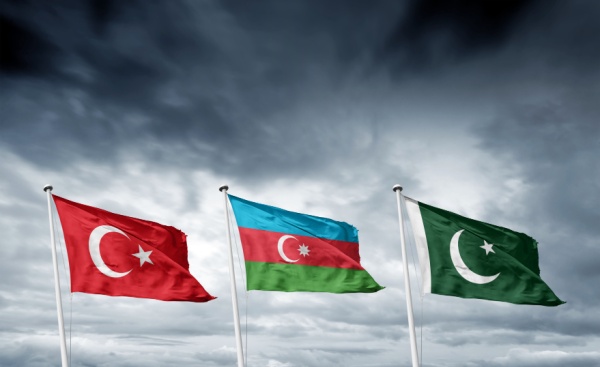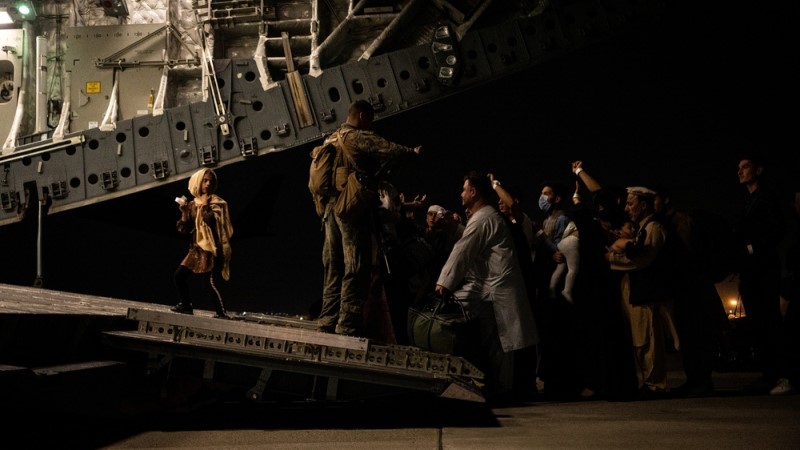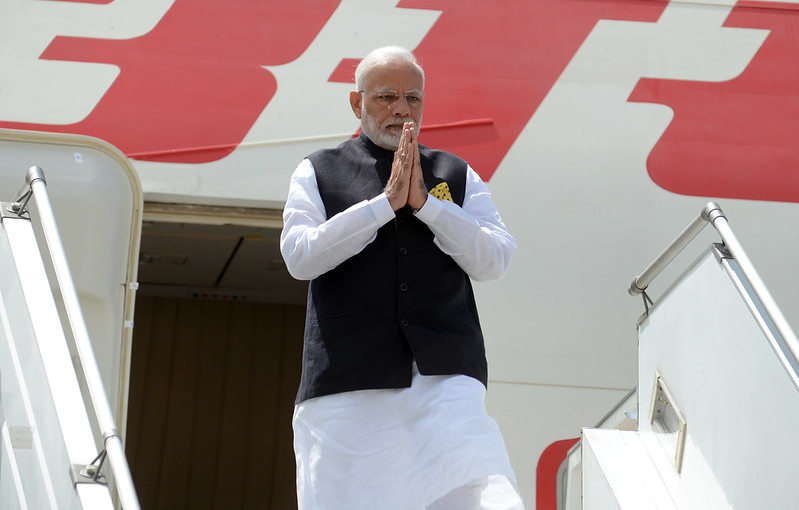Will the Shanghai Cooperation Organization Reconfigure Educational Cooperation?
WILL THE SHANGHAI COOPERATION ORGANIZATION RECONFIGURE REGIONAL EDUCATIONAL COOPERATION?
By Rafis Abazov
The recent Shanghai Cooperation Organization (SCO) summit in Astana has rekindled discussions on the role of the organization in reshaping regional educational cooperation. Historically known for its focus on security and economic issues, the SCO is increasingly recognizing education as a cornerstone for sustainable development and regional stability. This shift is significant for member states—China, Russia, India, and several Central Asian countries—as they navigate the complexities of globalization and seek to bolster their human capital. The main question is whether declarations at the summit denote a shift in the regional educational architecture.
BACKGROUND: Since its inception in 2001, the SCO has primarily concentrated on security cooperation and economic integration among its member states. However, the need for a skilled workforce, capable of driving innovation and economic growth, has brought education into the spotlight. The Astana SCO-2024 Summit underscored this shift, highlighting the potential of educational cooperation to foster mutual understanding, enhance economic ties, and promote cultural exchanges. In recent years, the SCO has launched various educational initiatives. The establishment of the SCO University Network, the SCO Youth Council and regional scholarship themes led to a sharp increase in regional student mobility – for example China reached a milestone in 2022 by attracting one million foreign students, while Kazakhstan attracted almost 30,000. Indeed, these efforts facilitated academic exchanges, joint research projects, and cultural interactions among students and scholars from member countries. The Astana summit built on these foundations, proposing a more structured and collaborative approach to educational cooperation, as almost one quarter of the 31 agreements signed during the summit were dedicated to the area of science and education. On top of this, Kazakhstan’s Ministry of Science and Higher Education hosted the regional conference “Cooperation in the field of higher education and production integration,” focused on developing a unified approach to accreditation, curriculum design, quality assurance, student mobility and mutual recognition of qualifications.
IMPLICATIONS: One of the important areas discussed at the Astana summit was the enhancement of academic exchanges and research collaborations. By fostering partnerships between universities and research institutions across member states, the SCO aims to create a robust network of knowledge and innovation. Such collaborations can lead to significant breakthroughs in various fields, from science and IT technology to social sciences and smart agriculture.
The proposed initiatives include exchange programs for students and faculty, joint research projects, and the creation of cross-border academic networks and joint research labs to study the impact of climate change at the regional and sub-regional levels. These efforts are expected to enhance the quality of education and research in member states, making them more competitive on the global stage. Another critical focus is the harmonization of educational standards across SCO countries. This alignment would not only enhance educational opportunities but also support a more integrated approach to developing double diploma programs between universities.
The summit proposed the creation of a common framework for higher education within the SCO. This framework would include standardized guidelines for curriculum development, accreditation processes, and quality assurance mechanisms. Such harmonization can make it easier for students to transfer credits between institutions in different countries and for professionals to have their qualifications recognized across the region. The COVID-19 pandemic has underscored the importance of digital education and technological integration.
The SCO members acknowledged that there is a rapid shift towards online learning, and an urgent need to invest in digital infrastructure and resources. The Astana summit highlighted the potential for collaboration in developing e-learning platforms, distance education programs, and digital literacy initiatives. In this context, the leading Chinese universities (such as Chinese Agriculture University) took initiatives to exploring ways of leveraging technology to bridge the digital divide among member states by promoting access to quality education and facilitating lifelong learning and upskilling, essential for adapting to the rapidly changing job market.
The creation of cohesive and inclusive frameworks would help to upscale the internationalization of education by integrating educational systems, and organizational cultures across SCO member states, and developing joint digital infrastructure. However, these initiatives require significant investments. Indeed, economic disparities among member states pose significant challenges. While some countries have advanced educational and digital infrastructures, others may struggle with limited resources and capacity. At least three countries – China, Kazakhstan and Uzbekistan – have allocated significant resources for bridging this gap, supporting deeper educational collaboration, and accelerating the adoption of online learning, access to digital tools and other resources.
CONCLUSION: The Astana summit SCO-2024 has set the stage for the SCO to play a transformative role in regional educational cooperation. As member states work to align their educational systems and policies, the organization is poised to reshape the regional educational architecture significantly. With a focus on academic collaboration, standardization, and digital innovation, the SCO is on a path to create a more integrated and dynamic educational ecosystem.
The success of future initiatives will depend on building on the foundations laid by existing programs. Strengthening and expanding platforms like the SCO University Network, the SCO Youth Council and numerous educational consortiums can provide a solid base for more ambitious projects. These platforms can serve as hubs for collaboration, innovation, and cultural exchange. Effective implementation requires the active engagement of various stakeholders, including governments, educational institutions, the private sector, and civil society. Collaborative efforts and partnerships can ensure that initiatives are well-designed, adequately funded, and effectively implemented.
The SCO has the potential to reconfigure regional educational architecture by enhancing educational cooperation and recognizing education as a cornerstone for regional development and peaceful integration. The outcomes of the Astana meeting signal a promising future for educational collaboration in the SCO region, with the potential to yield significant economic, social, and cultural benefits. As the SCO continues to evolve, its focus on education can play a transformative role in shaping the region’s future. By fostering a more interconnected and innovative educational landscape, the SCO can contribute to a more prosperous, stable, and cohesive region.
The Astana summit has marked a new chapter in this journey, setting the stage for the SCO to reconfigure the regional educational architecture in meaningful and impactful ways. Joint research projects and academic exchanges can generate new ideas, technologies, and solutions to common problems. This, in turn, can drive economic growth and increase competitiveness, positioning the SCO region as a leader in various fields.
AUTHOR’S BIOS: Rafis Abazov, PhD, is a director of the Institute for Green and Sustainable Development at Kazakh National Agrarian Research University. He is author of The Culture and Customs of the Central Asian Republics (2007), The Stories of the Great Steppe (2013) and some others. He has been an executive manager for the Global Hub of the United Nations Academic Impact (UNAI) on Sustainability in Kazakhstan since 2014 and participated at the International Model UN New Silk Way conference in Afghanistan.
India-Pakistan Strategic Rivalry Extends to the South Caucasus
By Vali Kaleji
March 28, 2024
The development of military and defense relations between Azerbaijan and Pakistan and Armenia and India is an important consequence of the political arrangement and the balance of forces after the Second Karabakh War. However, Pakistan’s non-recognition of Israel has prevented Baku from forming a “quadruple alliance” with its three strategic allies, including Turkey, Israel and Pakistan. Armenia, after defeat in the war and amid dissatisfaction with its traditional ally Russia and the Collective Security Treaty Organization (CSTO), views India, France and Iran as new strategic options, however, Iran prefers Armenia to maintain its traditional and strategic relations with Russia. The tripartite cooperation between Armenia, Iran and India focus efforts on “soft balancing” (economic-transit) instead of “hard balancing” (military-security), against the tripartite ties of Azerbaijan, Turkey and Pakistan in the South Caucasus.
India’s Changing Approach towards Central Asia and the Caucasus after the Afghanistan Debacle
India’s Changing Approach towards Central Asia and the Caucasus after the Afghanistan Debacle
By: Gulshan Sachdeva
India’s ambition to raise its profile and connect with Central Asian neighbourhood was reflected through its ‘Extended Neighbourhood’ and ‘Connect Central Asia’ policies. Prime Minister Modi further elevated these policies through India’s SCO membership and other institutional mechanisms. India’s strategy towards the region has been linked to its Afghanistan, China and Pakistan policies as well as Russian and U.S. designs. With the Afghanistan debacle, the earlier connectivity strategies are no longer valid as a Taliban-Pakistan-China axis will further strengthen the BRI profile, in which India has not participated. In coming years, New Delhi will work with Central Asian partners to safeguard the region from negative repercussions of the Taliban takeover in terms of radicalization, increased terrorist activity and drug trafficking.
Central Asia and the Caucasus have long been part of the Indian imagination because of old civiliza-tional linkages and cultural connections. After the Soviet break-up, new geopolitical realities and geo-economic opportunities further influenced Indian thinking in the 1990s. The emergence of new independent states opened opportunities for energy imports as well as trade and transit. There were also worries of rising religious fundamental-ism. Therefore, developing political, economic and energy partnerships dominated New Delhi’s “ex-tended neighbourhood” policy in the 1990s. Alt-hough India established close political ties with all countries in the region, economic ties remained limited. An unstable Afghanistan and difficult India-Pakistan relations created problems for di-rect connectivity. New Delhi tried to resolve the issue through working with Russia and Iran via the International North-South Trade Corridor (IN-STC) and its tributaries. Due to the U.S.-Iran ten-sions and stagnating India-Russia trade, this op-tion did not prove very effective. In the mean-while, the Chinese profile in the region increased significantly.
U.S. Troop Withdrawal from Afghanistan Risks Fueling a New India-Pakistan Proxy War
By Umair Jamal
August 25, 2021, the CACI Analyst
For more than two decades, India has openly opposed any prospect of the Taliban returning to power in Afghanistan. New Delhi has continued to oppose the Taliban even in the face of the international community’s ongoing effort to engage the group to find a negotiated settlement. Pakistan, on the other hand, supports efforts to engage the Taliban in an attempt to bring the Taliban back to power. After the collapse of former Afghan President Ashraf Ghani’s government and the fall of Kabul to the Taliban, Islamabad believes that it has scored a major win against India as it can isolate New Delhi’s political influence and interests in Afghanistan. The Taliban’s return to power risks turning Afghanistan into an India-Pakistan proxy battleground.

What does Iran and China's US$ 400 Billion Defense and Trade Deal Mean for India?
By Umair Jamal
September 30, 2020, the CACI Analyst
China and Iran’s US$ 400 billion trade deal will hurt India’s economic and security interests. With Iran likely to offer China the Chabahar port project, India’s Central Asia policy has suffered a huge setback. The Iran-China deal increases the importance of the China-Pakistan Economic Corridor (CPEC), a project that India opposes. Going forward, India’s ability to isolate Pakistan and balance China’s role will be severely circumscribed. The concerted effort of Iran, Pakistan and China to increase economic connectivity will definitely also involve Afghanistan, whereas India’s diplomacy faces an uphill task with the loss of a key ally to China.




